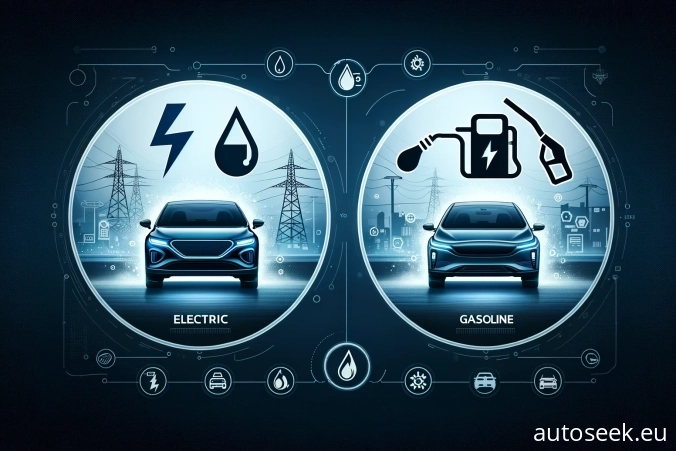Electric Cars vs Gasoline Cars: Making the Case for a Sustainable Future
The debate between electric cars and gasoline vehicles has been heating up, especially with the growing concerns about climate change and sustainability. This article aims to provide an in-depth analysis of why electric cars are not just an alternative but are becoming the future of transportation.
While gasoline cars have been the norm for decades, the tide is turning. Governments, corporations, and individuals are increasingly recognizing the advantages of electric vehicles (EVs). Let’s delve into the reasons why electric cars are gaining the upper hand.
Environmental Benefits
The environmental advantages of electric cars are undeniable. Unlike gasoline cars, electric vehicles produce zero tailpipe emissions, significantly reducing air pollution and contributing to a cleaner environment.
Electric cars are also more energy-efficient, converting a higher percentage of the electrical energy to power at the wheels. This is in stark contrast to gasoline cars, which waste a large amount of energy as heat.
Furthermore, as renewable energy sources like solar and wind become more prevalent, the carbon footprint of electric cars will continue to decrease. This makes them a sustainable choice for long-term environmental conservation.
Cost Savings
While the initial cost of electric cars can be higher, the long-term financial benefits are substantial. Electric cars have fewer moving parts, leading to lower maintenance costs over the vehicle’s lifetime.
Additionally, the cost of electricity for charging is generally lower than the cost of gasoline. This results in significant fueling cost savings in the long run.
Many governments are also offering tax incentives, rebates, and even free charging stations for electric vehicle owners. These financial incentives make electric cars an economically wise choice for the future.
Technological Advancements
The rapid technological advancements in the electric vehicle sector are another compelling reason to consider making the switch. Battery technology is improving, leading to longer ranges and shorter charging times.
Companies like Tesla, Zeekr, and Avatr are pioneering innovations in autonomous driving, advanced safety features, and luxurious interiors, setting new standards for what a car can offer.
Moreover, the growing network of fast-charging stations is making long-distance travel with electric cars more feasible than ever, further closing the gap between electric and gasoline vehicles.
Energy Independence
Electric cars offer countries the chance to achieve energy independence. By reducing reliance on foreign oil, nations can enhance their energy security and economic stability.
The flexibility to use various energy sources for electricity generation also provides a strategic advantage. Countries can opt for the most sustainable and cost-effective energy solutions, further promoting the use of electric cars.
In summary, electric cars are not just an eco-friendly alternative to gasoline cars; they are a smarter choice for the future. With their environmental benefits, cost savings, technological advancements, and contribution to energy independence, electric cars are set to redefine the landscape of personal transportation.
 English
English

